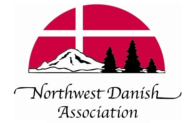The Danish American Cultural Retreat (DACR) is an annual opportunity to learn about topics related to Denmark and other Nordic countries. A true Pacific Northwest tradition, DACR has been held every year for more than 40 years at the Menucha Retreat and Conference Center overlooking the Columbia River Gorge.
DACR offers:
- A rich program to illustrate the significance of Denmark on the global stage
- An annual opportunity to learn about Denmark and its links to the United States, today and in the past

Registration is now open for the
Danish American Cultural Retreat at the Menucha Retreat and Conference Center September 20, 21, and 22, 2024
Early Bird registration is open Wednesday, July 24 – Sunday, August 4, 2024. Early Bird registration gets NWDA Members 10% off of conference registration and gets non-members 5% off of conference registration.
You must be registered by September 8, 2024 to attend DACR. Reach out to Emily at emily@nwdanish.org with any questions.
A registration perk is access to all the DACR 2023 talk videos. Access will be linked in your registration confirmation email.
Still not sure? You can view Katia Johansen’s 2023 talk Working with Royal Dress: Royal Danish Collections at Rosenborg Castle:
DACR 2024
The 2024 conference will be September 20th through 22nd. Program overview, speakers, and topics subject to change.
2024 Program Overview – In progress
- The Allure of the Vikings: Warriors, Women, and Politics – Terri Barnes, Portland State University, Portland, OR
- King Harald Bluetooth – Terri Barnes, Portland State University, Portland, OR
- Hour of Need: the Daring Escape of the Danish Jews During World War II (a Graphic Novel) – Ralph Shayne
- My Family History in Letters: Denmark’s Forgotten Holocaust – Bodil Jelhof Jensen and Kristen Petersen, Canada
- Nordic War Stories – Marianne Stecher Hansen, University of Washington, Seattle, WA
- Danish Folketing (Parliament) and Current Events – Preben Pedersen, Seattle, WA, with his sister Marianne and brother-in-law Martin, Denmark
- Saturday Night Entertainment by Flemming Behrend, Musician
2024 Program Abstracts – In progress
The Allure of the Vikings: Warriors, Women, and Politics – Terri Barnes, Portland State University, Portland, OR Medievalist historian Terri Barnes discusses common conceptions about Vikings and reflects on teaching Viking History and how we engage with the past.
King Harald Bluetooth – Terri Barnes, Portland State University, Portland, OR Harald “Bluetooth” Gormsson was a king of Denmark and Norway. He was the son of King Gorm the Old and of Thyra Dannebod. Harald ruled as king of Denmark from c. 958 – c. 986. Harald introduced Christianity to Denmark and consolidated his rule over most of Jutland and Zealand. Bluetooth was named after Harald “Bluetooth” Gormsson, who was a king in Denmark and Norway 1100 years ago. It is based on an analogy that the technology would unite devices the way Harald Bluetooth united the tribes of Denmark into a single kingdom. The Bluetooth logo consists of his initials, H (ᚼ) and B (ᛒ). The traditional explanation of Harald’s nickname is that he had a conspicuous bad tooth that appeared blue.
Hour of Need: the Daring Escape of the Danish Jews During World War II (a Graphic Novel) – Ralph Shayne n the Hans Christian Andersen fairy tale, legend had it that should danger ever come to Denmark, the mighty warrior Holger Danske promised to wake from his centuries-long slumber to protect its citizens. When the Nazis move to round up young Mette and her fellow Danish Jews in a surprise raid in 1943 after years of letting Denmark rule its people, her father must make life and death decisions to save his family. Overnight, they have become refugees at the mercy of the complete strangers they meet during their escape. The mythical Holger Danske’s promise to the Danish people manifests in the compassion and bravery of a school teacher turned resistance leader and other ordinary citizens who bravely defy the Nazi regime to come to her rescue in her hour of need. Told from the point of view of Mette returning to Denmark years later with her grandchildren, Hour of Need tells the story of how the people of an occupied nation–from king to fisherman–risked their lives to evacuate their Jewish countrymen to Sweden in small fishing boats. Hour of Need is a tribute to the heroes that saved the Danish Jews and how humanity triumphs in the darkest hours. Developed in partnership with the Illinois Holocaust Museum and Education Center. Find out more at ilholocaustmuseum.org.
My Family History in Letters: Denmark’s Forgotten Holocaust – Bodil Jelhof Jensen and Kristen Petersen, Canada In October 1943, Max and Rose Hartwig walked into Theresienstadt along with 200 other Jewish Danes. Billed in Nazi propaganda as a model ghetto to resettle European Jews, Theresienstadt was in fact a transit stop for the death camps and was itself a death camp housing a crematorium with four ovens. While Max and Rose languished in the camp, their seven children and their families found refuge in Sweden. From there, they did everything possible to free Max and Rose, sending letters, money and care packages. When Max left the camp on a Red Cross bus in April 1945, he smuggled out these letters of love and, against all odds, most survived the intervening years. The actual letters are reproduced here in their entirety as originally handwritten in German with translations to Danish and English. The family history is completed with letters written before and after the war, family photos and official documents. Written as events unfolded by the people who were there, these letters give a unique insight into the Holocaust. The book presents a story of love and hope, and for most, survival. A touching story of courage about one family in World War II Denmark.
Nordic War Stories – Marianne Stecher Hansen, University of Washington, Seattle, WA Situated on Europe’s northern periphery, Denmark, Finland, Iceland, Norway, and Sweden found themselves caught between warring powers during World War II. Ultimately, these nations survived the conflict as sovereign states whose wartime experiences have profoundly shaped their historiography, literature, cinema and memory cultures. Nordic War Stories explores the commonalities and divergences among the five Nordic countries, examining national historiographies alongside representations of the war years in canonical literary works, travel writing, and film media. Together, they comprise a valuable companion that challenges the myth of Scandinavian homogeneity while demonstrating the powerful influence that the war continues to exert on national identities.
Danish Folketing (Parliament) and Current Events – Preben Pedersen, Seattle, WA, with his sister Marianne and brother-in-law Martin, Denmark More information to come.
A typical year at DACR:
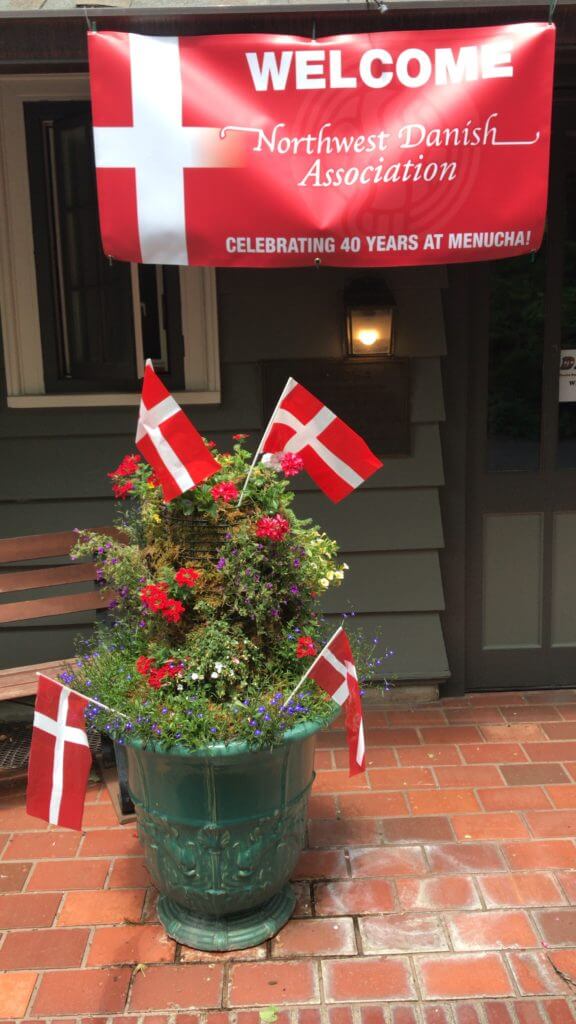
DACR is typically held in person in Oregon each year. DACR is now held in September.
Program Features:
The rich DACR program has included presentations by CEOs, presidents, or other representatives from key players in the Danish American community, such as:
- Museum of Danish America
- Nordic Museum
- Scan Design Foundation
- Embassy of Denmark, USA
- Novo Nordisk
- WWII and the Danish Resistance Movement -Author Nathaniel Hong\
- Hans Christian Andersen -Dr. Marianne Stecher, UW Scandinavian Studies Professor and Head of UW Danish Program
- The Golden Era of Danish Silent Films -Kristian Næsby, UW Scandinavian Studies Visiting Danish lecturer
- Vikings in Denmark -Author William Sullivan
- Falck: Danish Emergency Services -Peter Jorna, Falck USA
- Danish Cheeses -Dr. Lisbeth Goddik, OSU Dairy Processing Extension Specialist and Associate Professor in Food Science
- Nimbus Motorcycles –Nimbus Motorcycle Club, USA
- Danish Defense Policies –Niels Ulrik Olsen, Royal Danish Embassy
- The Greenland Ice Sheet and Climate Change -Dr. Christina Hulbe, Portland State University
Learn or Practice Danish. DACR offers optional classes for those who would like to learn some Danish at the retreat! Many Danish speakers attend DACR allowing ample opportunities to speak the language.
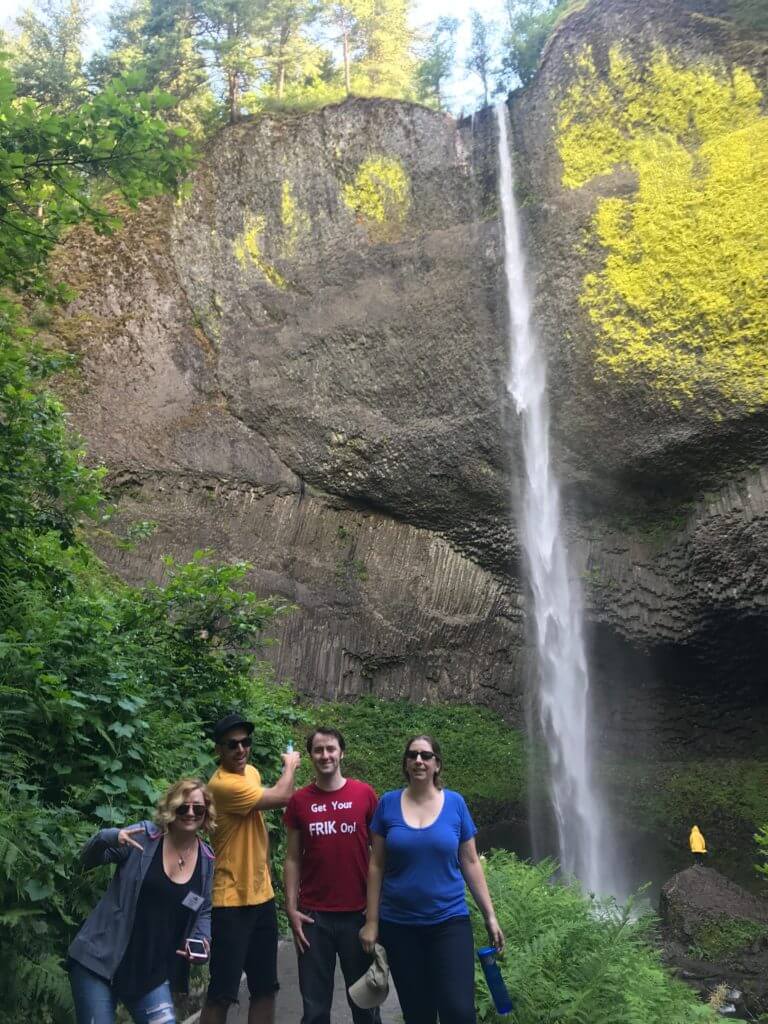
Nature Walks
Experience waterfalls and lush green surroundings at DACR. We take a field trip to one of the waterfalls each year and to the nearby vista house with spectacular views of the Columbia river.
Evening Entertainment
Each year we have evening entertainment for guests to enjoy before ‘Kro Aften’. On Friday we celebrate Sankt Hans with snobrød and traditional Danish midsommer songs around the fire.
Kro Aften
To wind down from all the daily activities, guests are invited to join us in the ‘Kro’ each evening for beer, wine, and bar snacks.
Conference Schedule
Friday check-in: Begins at 11:00 am followed by Menucha orientation and then lunch at 12:00 pm.
Friday programs: 2:00 pm to 6:00 pm
Saturday: 8:00 am to 10:00 pm
Sunday: 8:00 am to 9:30 am
The Menucha Retreat and Conference Center
DACR is held at the Menucha Retreat and Conference Center in Corbett, Oregon. Menucha Retreat offers a variety of amenities and lodging options. Lodging options include rooms that are private, semi-private, or dormitory style.
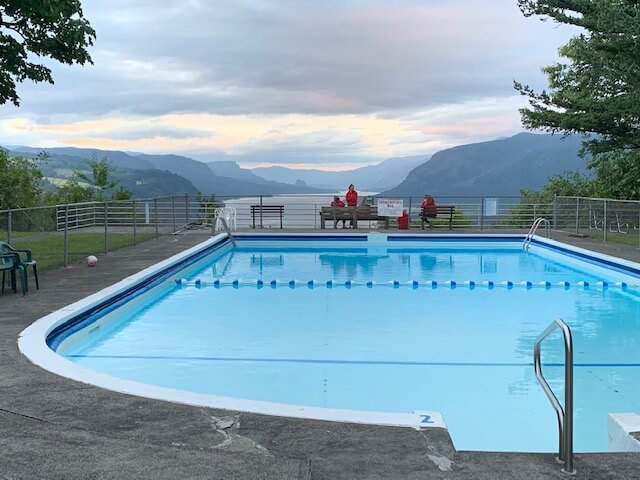
The beautiful grounds at Menucha have so much to offer, including:
- Panoramic views
- A swimming pool and courts for a variety of sports
- Hiking trails, fire pits, and much more
Getting to DACR
The Menucha Retreat and Conference Center in Corbett is located right on the Washington-Oregon state border.
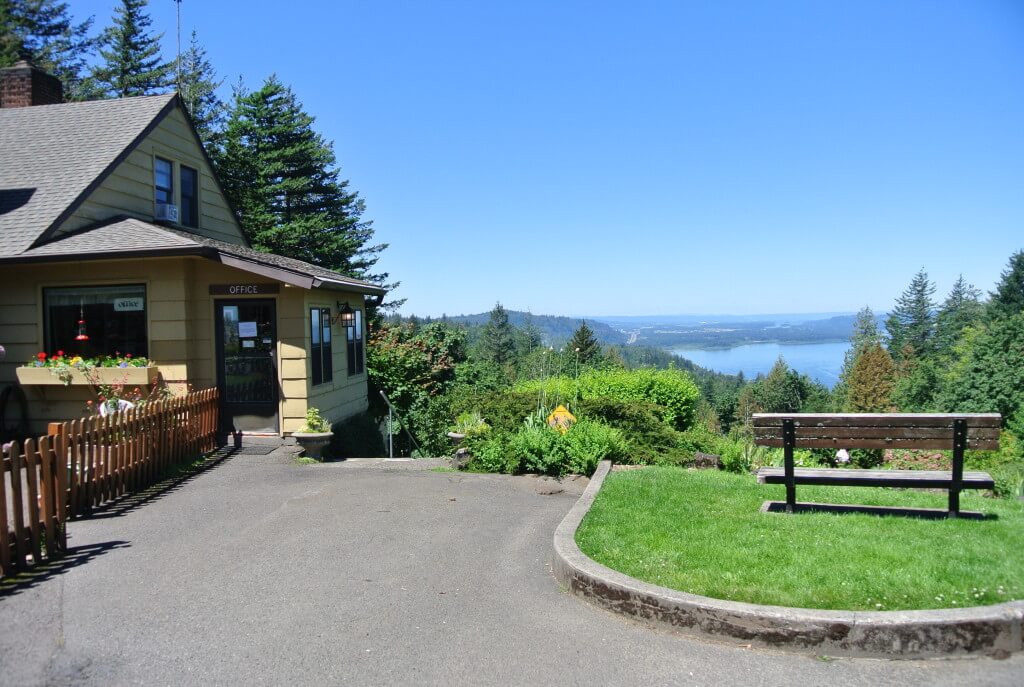
Approximate travel times:
- From Seattle: Less than 4 hours by car
- From Portland: 30 minutes by car
For those who need a ride from Seattle or Portland, we can help arrange carpools. Guests can also fly in to Portland International Airport. We can help arrange rides from the airport, if needed.
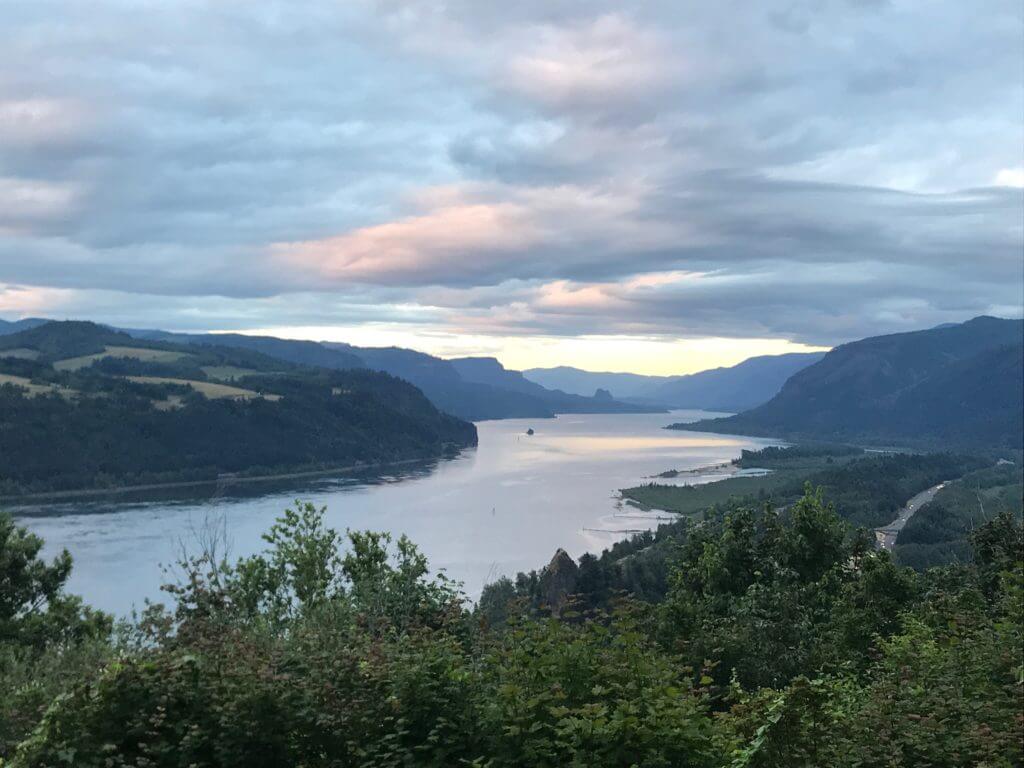
Watch for mailed postcards, website information, The Little Mermaid, and e-bulletin announcements with updates! To receive the most up to date information on DACR and other NWDA programs, events, and activities, sign up for our e-bulletin mailing list.
